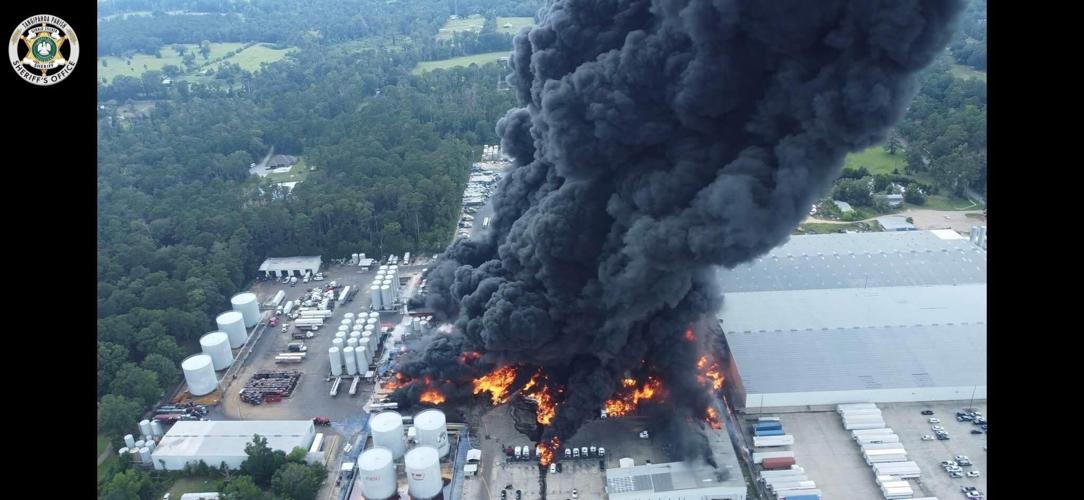
On Aug. 22, an ecological disaster began to unfold in my hometown in South Louisiana with the explosion of the Smitty’s Supply plant in Roseland. Two days later, the oil and chemical tanks are still burning, though reported to be 90% under control. The cause is still under investigation.
Everyone within a one-mile radius was evacuated, but the smoke plumes could be seen for many miles. Residents in neighboring towns are reporting an oily residue on everything.
At 9:54 that night after the fire started, a friend texted me, “I just drove down that way on I-55. I could smell it.”
Smitty’s manufactures over 200 products, including industrial and commercial lubricating fluids as well as diesel engine oils. They are a major employer in the area.
We’re only five days out from the 20th anniversary of Hurricane Katrina’s landfall in Louisiana, and I can’t help but think of that capitalist-made ecological disaster, as well as the BP oil spill of 2010. Fortunately, nobody has died so far from the Smitty’s explosion, but people are pretty freaked out about the potential health impacts.
Hurricanes are major events, but some of the deadliest impacts of climate change and fossil-fuel dependence are slow burners. These include skyrocketing numbers of heat-related deaths worldwide and the effects of inhaling wildfire smoke.
This situation since Friday is bad, but Louisiana is already heavily polluted by the barely regulated oil, gas, and chemical industries, especially in predominantly Black or Indigenous areas. Roseland is 61.36% Black according to 2020 Census data. Adjacent Amite City (where I’m actually from) is 54.43% Black.
There are plenty of poor white people, too – the folk that Trump and Vance sometimes pretend to care about, but do nothing but rob. They’ll help white Louisiana workers as soon as they help those white coal miners in Appalachia – that is, never.
On Aug. 24, WAFB meteorologist Steve Caparotta posted pictures on Facebook showing an oily sheen on the Tangipahoa River, which empties into Lake Pontchartrain. Others are posting photos of animals covered in oil.
My niece summed things up like this:
“Mom let the cat out last night for a minute to use the bathroom, and his feet were covered. The rivers are black, and animals are covered in soot and oil. The farmers can’t use any produce and might have to wait years until their soil is usable again. All livestock are covered and have been grazing on grass covered in pollutants.
“I feel so bad for all the animals who have no idea what’s going on. And many people here don’t really believe in climate change and think it will go away in a couple days, but there will be long-term effects.
“I’m sure many people will have health issues because of it too. People still can’t return to their homes and everything is a giant mess. This is terrible for the environment and will ruin the economy here as Smitty’s played a big role in it and so does farming. Not to mention 450 people now without jobs (and some no longer have cars / trucks because they burned in the fire) and are supposed to live off of $250 a week. It’s just a tragedy overall.”
Five days out from the 20th anniversary of Katrina, and all I can think is that nothing has changed, except for the worse. Louisiana is still suffering from the profit-driven reliance on fossil fuels. What is it going to take for us to say enough is enough? Clearly, “our” millionaire politicians kissing the asses of oil and gas billionaires aren’t going to change anything.
We should have no illusions about that. It’s going to take a massive movement of the people.
Join the Struggle-La Lucha Telegram channel
